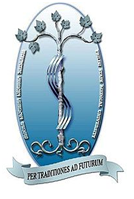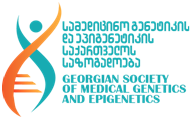- Overall accuracy of science content (0-7 pts)
- Use of evidence to support an argument (0-5 pts)
- Writing quality (clear thesis, composition) (0-6 pts)
- References and citations (0-2 pts for several high-quality sources)
Essay Contest for Students
Tbilisi State Medical University Department of Molecular and Medical Genetics, Georgian Society of Medial Genetics and Epigenetics and Centogene AG announce essay contest.
 |
 |
 |
 |
Participants: Medical students form Georgian Universities (years 4th, 5th, 6th), residency and PhD medical students
Essays must be written in English.
The topic of the essay is: “Biomarkers in the Diagnosis of Rare Diseases.”
(Describe what are biomarkers, their role in rare diseases diagnostic process and implementation in predictive and personalize medicine. Discuss clinical studies (epidemiological/interventional) as the important and powerful tool in biomarkers development. Based on one or several examples outline the advantages and limitations, perspectives and drawbacks).
The winner of the contest will be prized by a travel grant to attend the rare disease conference in Bogota (Columbia)
RARD2019 – Recent Advances in Rare Diseases:
Frequently Misdiagnosed Hereditary Disorders (FREMIDIS) –
Multidisciplinary Translational Research Affects Global Clinical Impact
https://www.centogene.com/rard-2019

The winner will receive full scholarship (registration, travel, accommodation for three nights, certificate) to attend the conference.
The deadline of submission is February 10, 2019.
Essay Format:
Word count: 1000-1500
Word count includes in-text citations, but does not include reference lists.
Essay language: English
Font: Times New Roman, Size: 11
File format: pdf
Line spacing: 1
One essays must be submitted by one author; group submissions are not permitted
Essay title is optional and will be counted towards the word limit
One optional figure or image can be included in the essay
If desired you can also attach your photo
Please send your essay on the following email: rardis.georgia@gmail.com. In the “Subject” please indicate: Rare Disease 2019 and your mane (e.i. Rare_ Disease_ 2019_ Nino_ Ninoshvili). The name of your pdf file should be the same.
Please Note
Plagiarism will not be tolerated. Definition of Plagiarism: The appropriation of another person’s ideas, processes, results, or words without giving appropriate credit. Review Board will use the text-matching software to screen plagiarism. Essays containing plagiarism will be disqualified. Students may use either APA or MLA style citations. Author should use several high quality source (for example, from PubMed)
– In the brackets indicate [number], which corresponds to the number of the cited literature source at the end of the essay.
– Or in the brackets indicate the [name of the author and the year] of publication [e.i. Harris et al., 2001]
– The list of the cited literature resources should be given in the alphabetic manner:
– Name of the author(s)
– Year of publication
– Name of the article
– Name of the journal
– Volume and issue number of the journal
– Pages
Ex: Cozma C, Iurașcu MI, Eichler S, Hovakimyan M, Brandau O, Zielke S, Böttcher T, Giese AK, Lukas J, Rolfs A. (2017). C26-Ceramide as highly sensitive biomarker for the diagnosis of Farber Disease. Scientific Reports, 7(1):6149
Also note:
– Do not change the meaning of the original paper while citing.
– The essay that consists only (or mainly) from one cited reference or one study results will be insufficient .
– The essay thesis statement should clearly state your opinion or view on the question; it should not repeat the content of other publication(s).
The winner will be announced on February 28, 2019 on a conference, dedicated to the International Rare Disease Day.
Scoring:
Essays will be read and scored by at least two independent geneticists. Scoring will be based on the following criteria:
Maximum points 20 possible.




